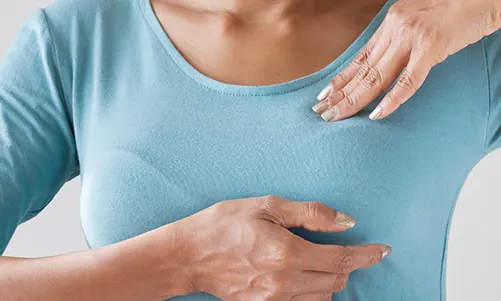Fibroadenomas are benign (non-cancerous) breast lumps that grow in the lobule area of the breast tissue. These lumps can be round or oval-shaped and can be firm or rubbery. Fibroadenoma grows very slowly and does not always increase in size; it may also shrink on its own. The lump can be as small as a pea and it can grow as large as a golf ball. A growing fibroadenoma can cause discomfort, pain, change breast shape, breast distortion, etc.
Consult with the best breast care specialists for fibroadenoma treatment at the CK Birla Hospital in Delhi.

Fibroadenoma is a common type of solid breast lump that is most common in women aged between 15 and 35. The cause behind this growth is believed to be due to sensitivity to estrogen. Fibroadenoma tends to grow during pregnancy and shrink after menopause. A family history of fibroadenoma can also increase the risk.
Surgery: ₹35,000 to ₹90,000
Cryoablation: ₹25,000 to ₹50,000
Vacuum-Assisted Excision: ₹45,000 to ₹60,000
Note: These figures are approximate and can vary based on individual circumstances, hospital facilities, and additional services required.
There is nothing that can be done to prevent or lower the risk of fibroadenoma, though there are various steps to take that can reduce the risk of breast cancer including:
Diagnosis of fibroadenoma can be done by a thorough physical examination by a gynaecologist. The specialist might feel the lump to assess its size, texture, and mobility.
Recovery from fibroadenoma treatment, whether a surgery or minimally invasive treatment procedure, is generally quick and most patients recover to normal activities within a few weeks.
Generally, there is no such major complication if fibroadenoma is left untreated. At times it does not require any treatment and can be just safely monitored over time.
No, fibroadenomas do not turn into cancer.
While usually fibroadenomas do not cause pain, if the size is large it can sometimes cause pain and discomfort, especially during menstrual cycles.
The exact cause is still unknown, though it is associated with sensitivity to estrogen.
No, in most cases fibroadenomas do not affect breastfeeding.
No, fibroadenomas themselves do not cause breast cancer.